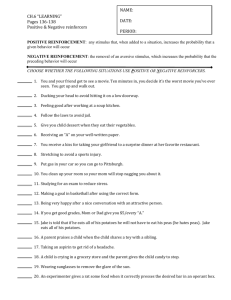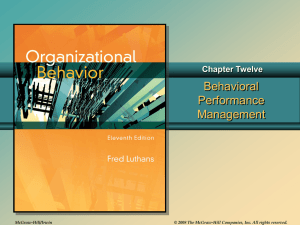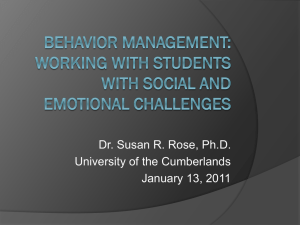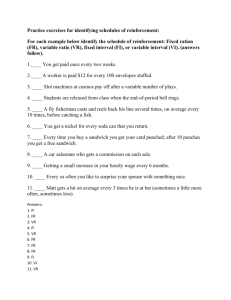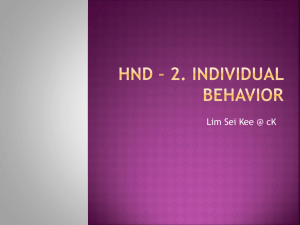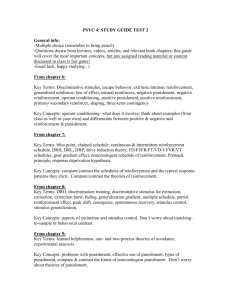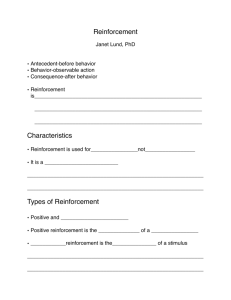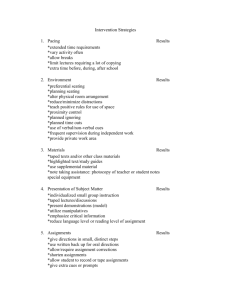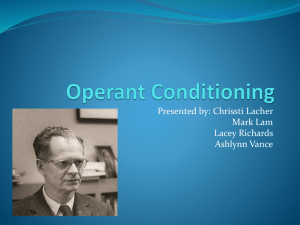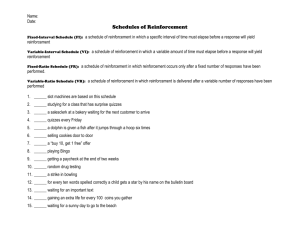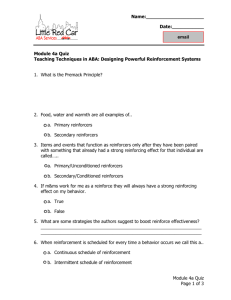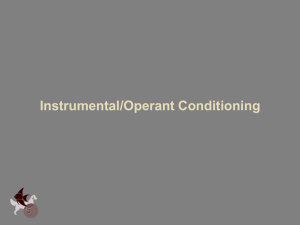PSYCHOLOGY 314 FINAL EXAM STUDY GUIDE
advertisement
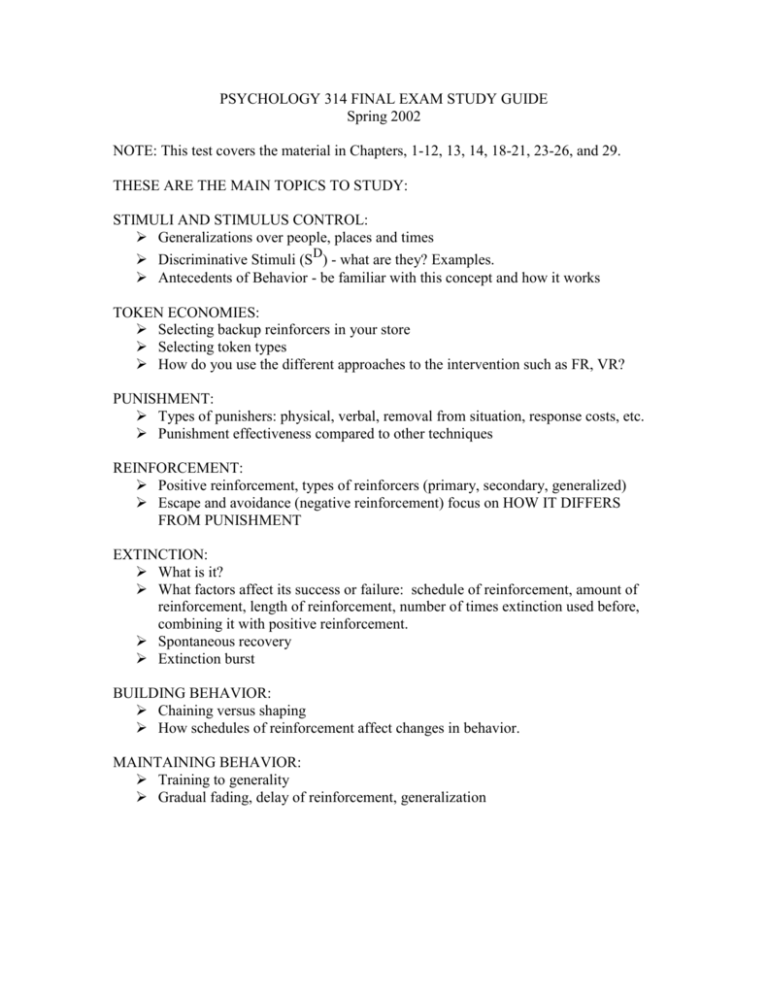
PSYCHOLOGY 314 FINAL EXAM STUDY GUIDE Spring 2002 NOTE: This test covers the material in Chapters, 1-12, 13, 14, 18-21, 23-26, and 29. THESE ARE THE MAIN TOPICS TO STUDY: STIMULI AND STIMULUS CONTROL: Generalizations over people, places and times Discriminative Stimuli (SD) - what are they? Examples. Antecedents of Behavior - be familiar with this concept and how it works TOKEN ECONOMIES: Selecting backup reinforcers in your store Selecting token types How do you use the different approaches to the intervention such as FR, VR? PUNISHMENT: Types of punishers: physical, verbal, removal from situation, response costs, etc. Punishment effectiveness compared to other techniques REINFORCEMENT: Positive reinforcement, types of reinforcers (primary, secondary, generalized) Escape and avoidance (negative reinforcement) focus on HOW IT DIFFERS FROM PUNISHMENT EXTINCTION: What is it? What factors affect its success or failure: schedule of reinforcement, amount of reinforcement, length of reinforcement, number of times extinction used before, combining it with positive reinforcement. Spontaneous recovery Extinction burst BUILDING BEHAVIOR: Chaining versus shaping How schedules of reinforcement affect changes in behavior. MAINTAINING BEHAVIOR: Training to generality Gradual fading, delay of reinforcement, generalization FUNCTIONAL ANALYSIS: Behavioral excess vs. behavioral deficiencies Antecedents and contingencies The ABC's INTERVENTION: Types of design (AB, ABA, AB1B2, etc.) How do you decide which to use? What do you do if it is not working? What is a baseline? Why is it important? SELF-CONTROL: Self-monitoring of covert behaviors Self-reinforcement and punishment Alternative responses Bibliotherapy COGNITIVE BEHAVIOR MODIFICATION: Systematic Desensitization - why does it work? Pairing relaxation and exposure Virtual reality Fear Hierarchy - why is it needed? SUDS -what are they? Deep muscle relaxation Cognitive techniques Imagery Self-talk Flooding Covert conditioning Ellis' Rational Emotive Therapy Beck's Cognitive Therapy Thought Stopping Problem Solving techniques Comparative data with Behavioral techniques alone, with cognitive components and cognitive alone ETHICAL ISSUES: Social context - why is it important? Individual freedom Least Restrictive Alternative APA guidelines (Psychologists) Human Subject Committees - what are their functions? Professional responsibilities Concern for welfare Informed Consent
